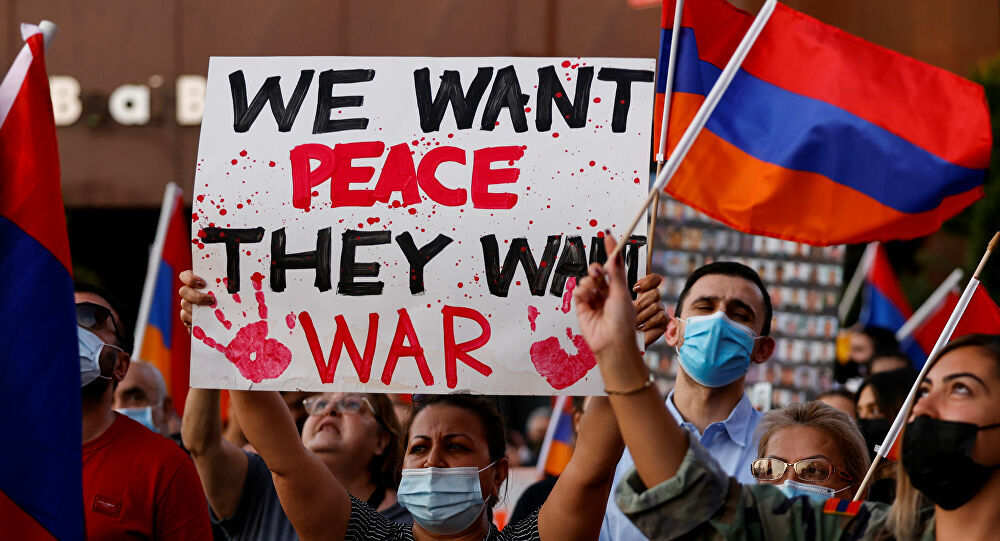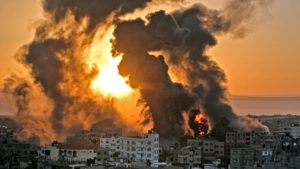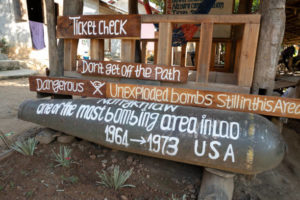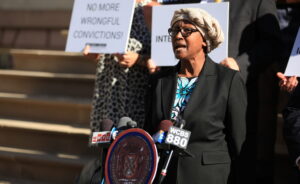
Image Credit: Mike Blake, Reuters
Ganja, Azerbaijan – Armenian forces shelled Ganja, the second largest city of Azerbaijan, over the disputed Nagorno-Karabakh enclave last week. A war between Azerbaijan and Armenia erupted on September 27 killing and injuring hundreds of people. Authorities have confirmed over 200 deaths.
The self-proclaimed authorities of Nagorno-Karabakh declared that Ganja’s military airport was attacked by Armenian forces after Azerbaijan shelled the city of Stepanakert in Karabakh. Azerbaijan strongly disputed this information as a blatant lie while confirming that no Ganja military sites were attacked.
Azerbaijan’s defense ministry claims that its forces have reclaimed control of several villages and their frontline positions have improved. They have demanded the withdrawal of Armenian troops from the area while confirming that as a result of enemy fire, civilians were severely harmed.
The Armenia Ministry of Defense contradicts Azerbaijan’s claims by stating that no fire of any kind is being opened from the territory of Armenia in Azerbaijan’s direction. Allegedly, Armenia provides both military and economic support to Nagorno-Karabakh without officially recognizing it as an independent state.
Amid these contradictory statements, the death toll in the region continues to rise on both sides each passing day but casualty claims have not been independently verified.
In a BBC Hardtalk Show, the Armenian Prime Minister Nikol Pashiyan said that peace cannot be achieved through the unilateral efforts of Armenia and he asserted that Azerbaijan was the aggressor in the military attacks against Armenia. However, Pashiyan failed to substantiate that claim with proof.
Background on the Conflict
Armenia and Azerbaijan were part of the Soviet Union, but with the Soviet Communist regime’s end, new borders in this Caucasus region were formed. The mountainous region of Nagorno-Karabakh that lies in between Azerbaijan and Armenia was originally inhabited by Christian Armenians and Turks.
With the fall of the Soviet regime in the late 1980s, Nagorno-Karabakh proclaimed its independence, triggering a war between Armenia and Azerbaijan. Eventually, a ceasefire was declared with Azerbaijan capturing this territory and other cities in the region. This dispute rages on.
Although officially part of Azerbaijan, Nagorno-Karabakh is not recognized as an independent state by any other country. The majority population consists of ethnic Armenians.
Turkey’s Role
Armenia has alleged that Turkey, a North Atlantic Treaty Organization (NATO) member, is openly backing Azerbaijan militarily. Turkey’s F-16 shot down three Armenian fighter jet planes last week. However, an anonymous American journalist confirmed to Current Affairs Times that there is no evidence of Turkey’s involvement nor are their forces present at the military base of Ganja.
At this point, it may be very hard for Armenia to negotiate peace with Turkey backing Azerbaijan while superpowers like the U.S. are distracted with their own internal elections, rendering the Americans unable to respond to Armenia’s request for assistance.
NATO’s press officer, Mark Sanders, directed Current Affairs Times to a press conference in Ankara, Turkey where NATO’s Secretary-General, Jens Stoltenberg expected Turkey to use its considerable influence to calm tensions in the region.
If Turkey has indeed been providing military support to Azerbaijan, then Turkey may face the consequences of disregarding NATO’s directive.
Response by International Bodies
The Organization for Security and Co-operation (OSCE) in Europe has stepped in as a mediator. In 1992, the OSCE established the Minsk Group as a way to resolve the dispute between Armenia and Azerbaijan. This group is now attempting to bring peace in the region of Nagorno-Karabakh.
OSCE confirmed to The Current Affairs Times that it continues to support the work of the Minsk Group, adding that the eruption of war has been highly volatile this year.
International Crisis Groups’ Senior Analyst, Olesya Vartanyan, reiterated to Current Affairs Times the Crisis Groups’ prior analogy that “Russia, potentially with European support, probably stands the best chance of brokering a ceasefire having ties with both countries.”
The Problem of Self Proclaimed Governance In Neighboring Regions
While Nagorno-Karabakh has self-proclaimed independence, many of its neighboring countries including Kyrgyzstan, with a history of political volatility, is being toppled with protests as officials this week annulled the results of parliamentary elections. Various forces are claiming to seize power.
As an international rule, self-proclaimed authorities are not recognized by UN member countries, including Armenia. The problem is that many Eastern European countries are now disregarding UN norms due to their internal political clashes and agenda.
The question is will Russia be of any real help?
Image Credit: Mike Blake, Reuters
Sources:
- “Nagorno-Karabakh conflict: Major cities hit as heavy fighting continues”
- “Why Armenia and Azerbaijan are fighting, and why it could get uglier”
- “The BBC Hardtalk: Nikol Pashinyan”
- “Remarks by NATO Secretary-General Jens Stoltenberg at the joint press conference with the Minister of Foreign Affairs of Turkey, Mevlüt Çavuşoğlu”
- “De-escalating the New Nagorno-Karabakh War”
- “Kyrgyzstan Annuls Results Of Parliamentary Elections After Night Of Deadly Protests”
Afia is a lawyer, journalist, an avid traveler, an avid reader, a foodie, and an amateur singer. She enjoys instrumental music with her glass of wine ?






